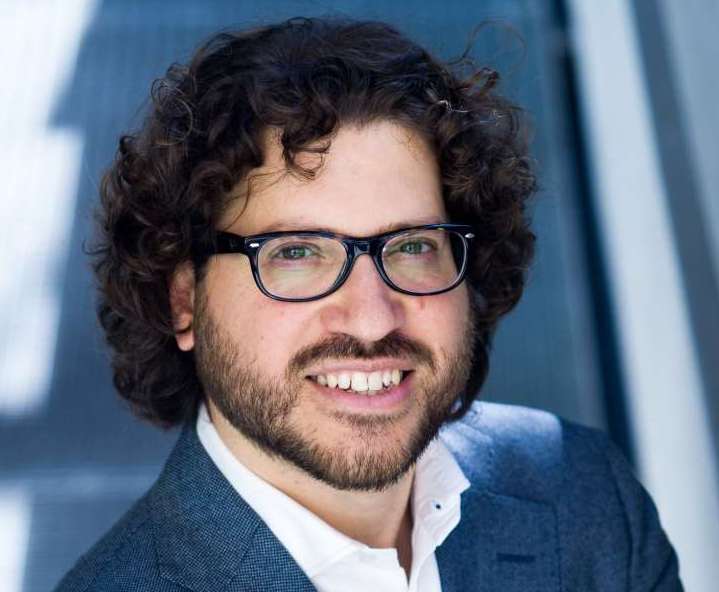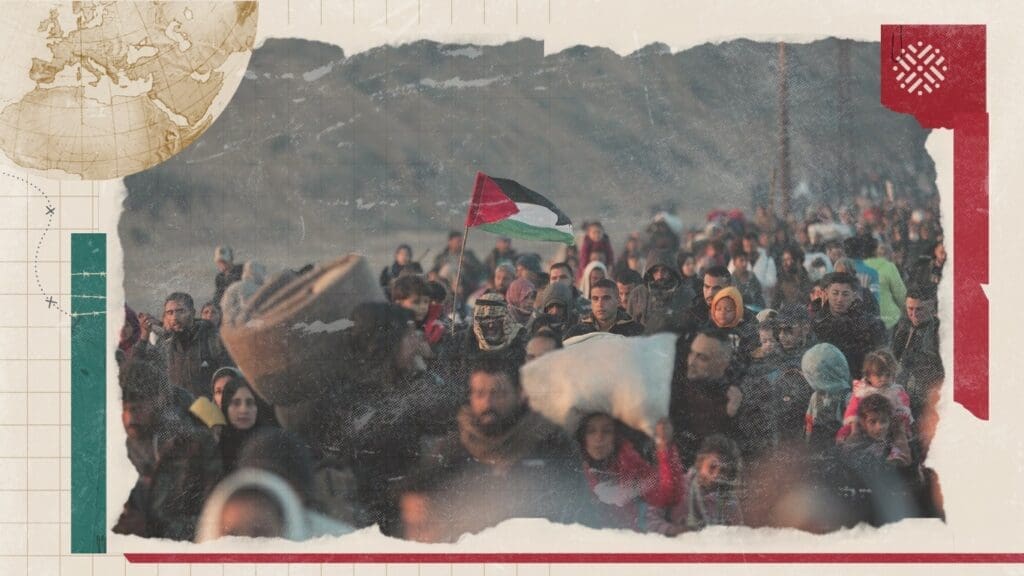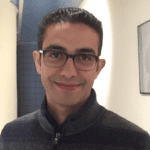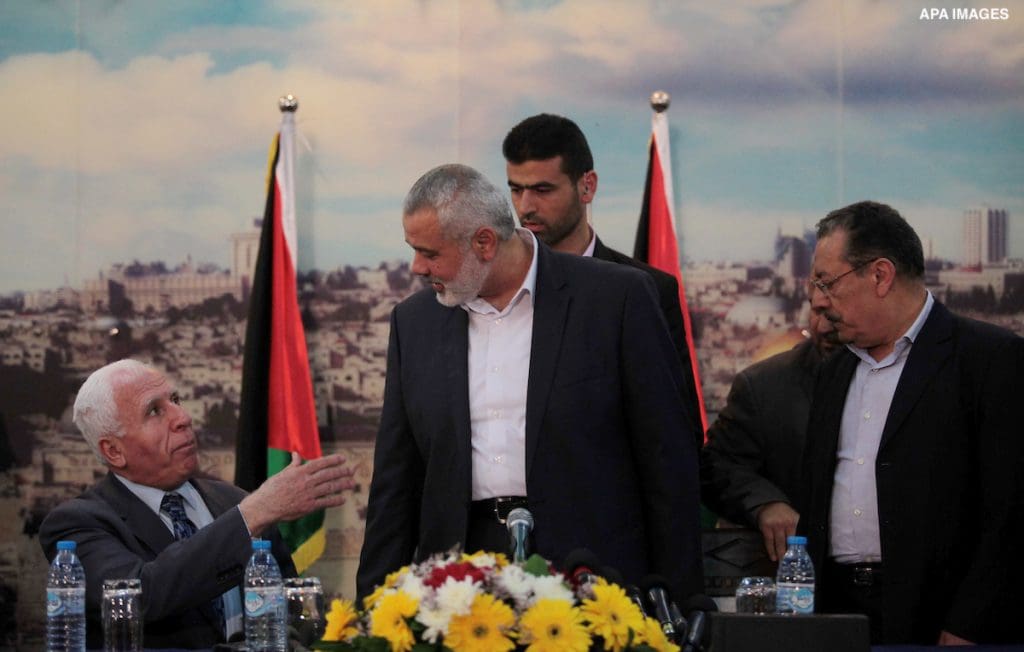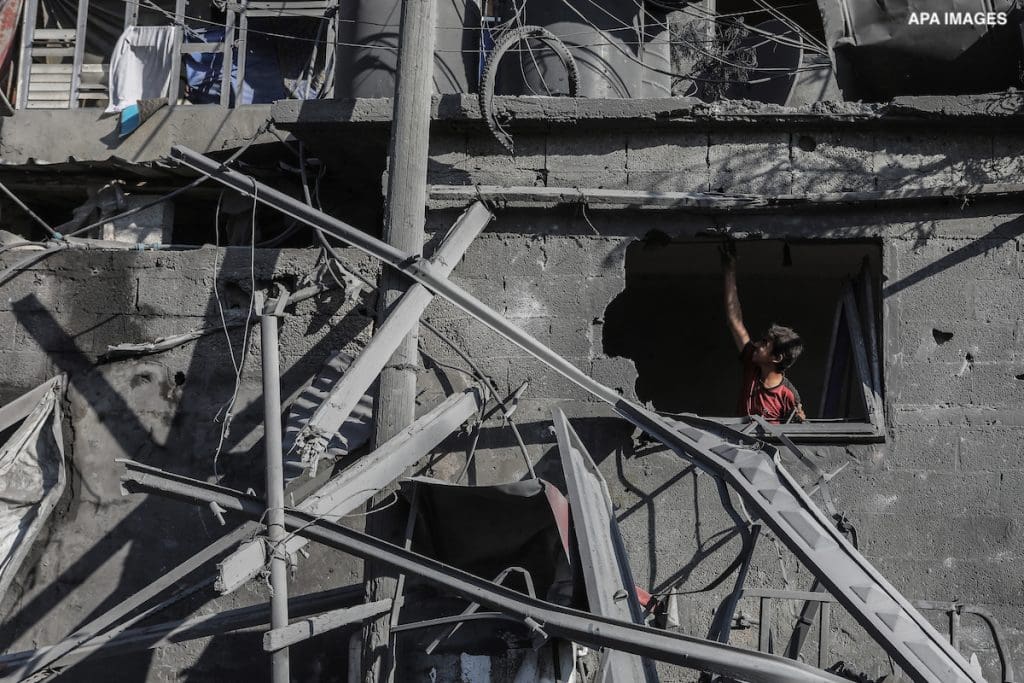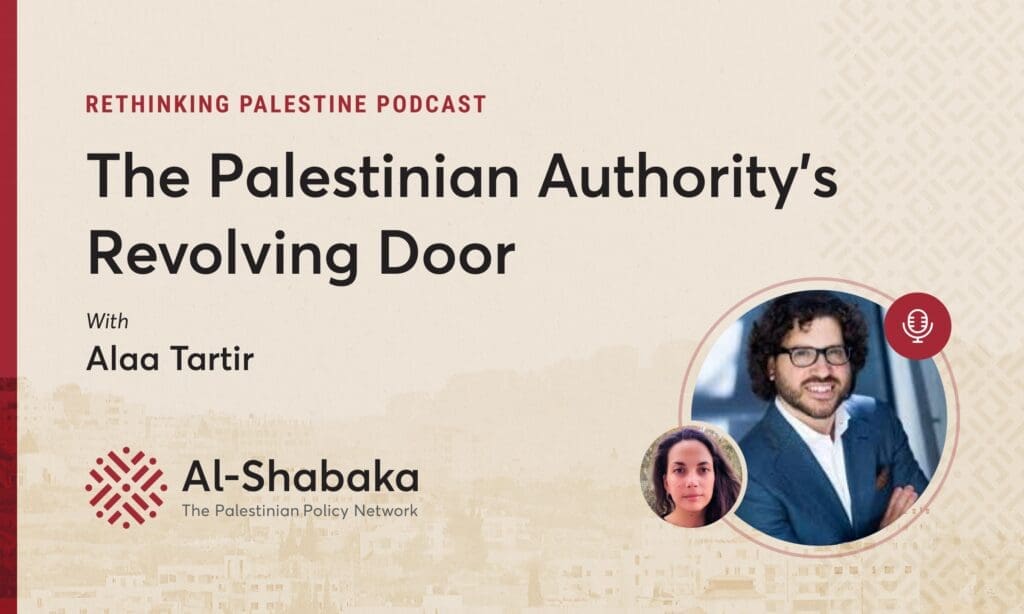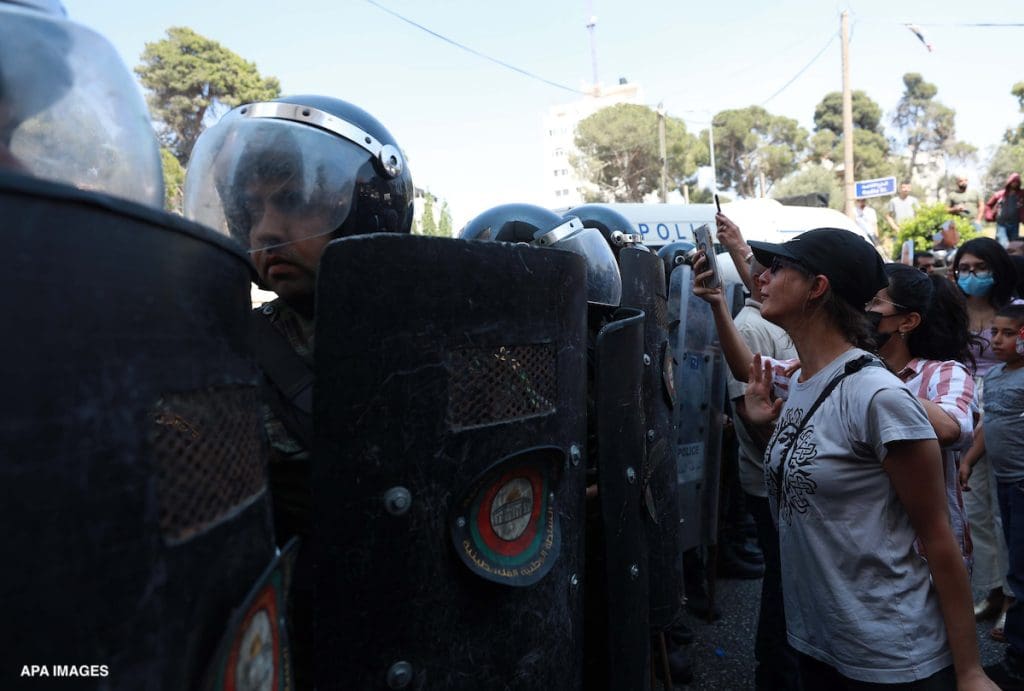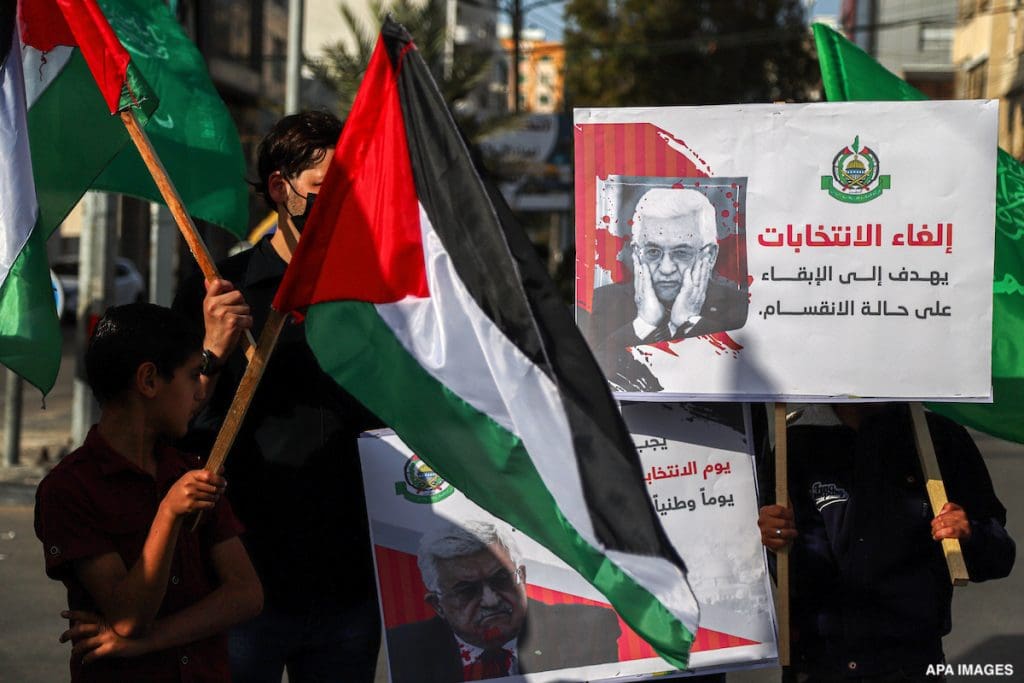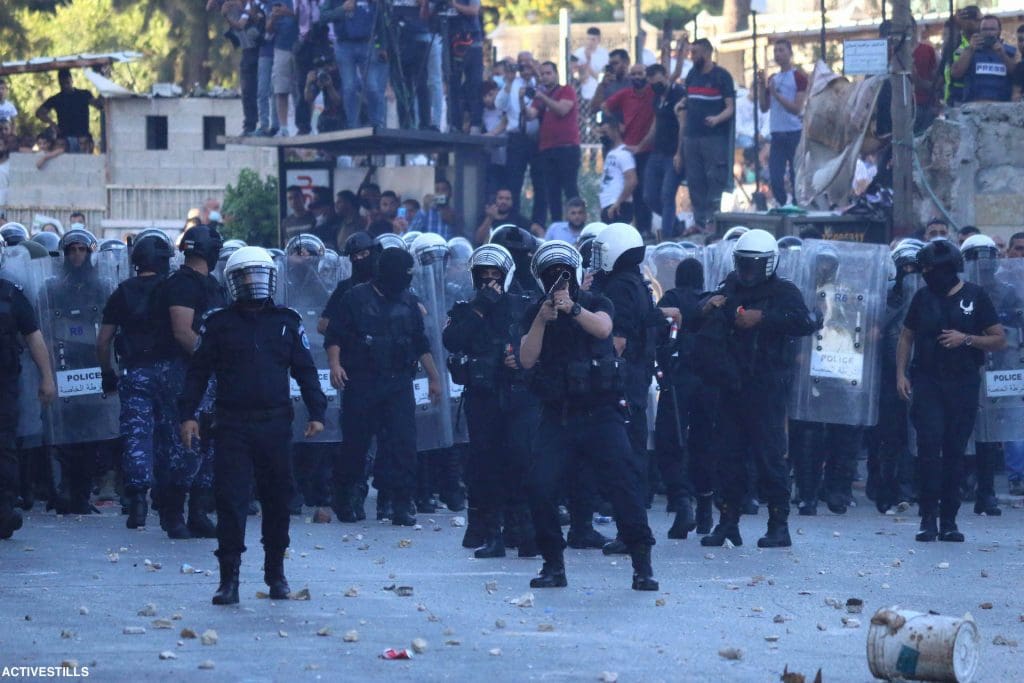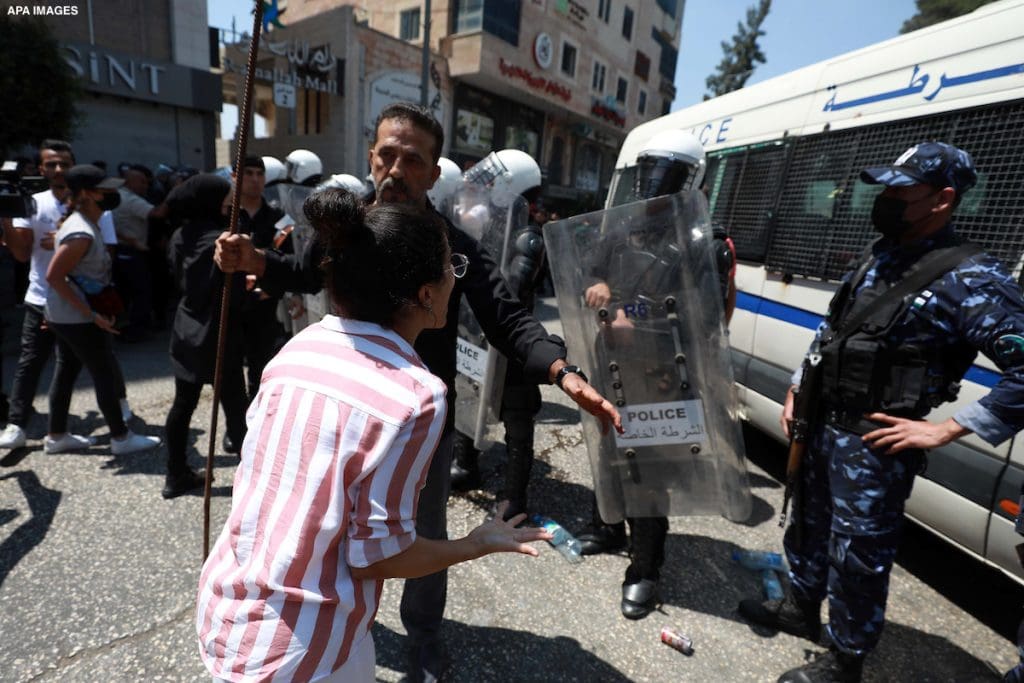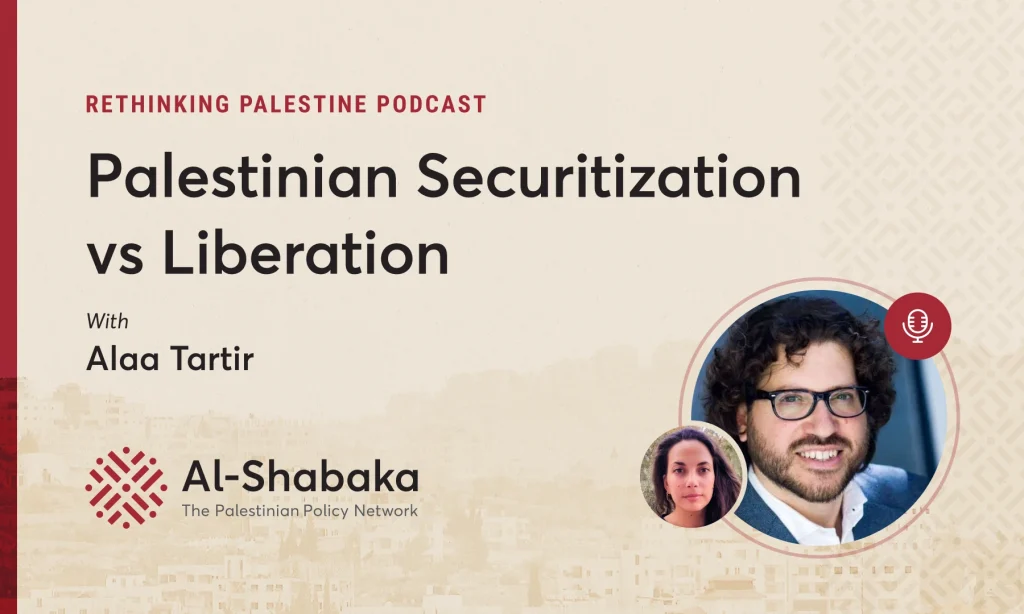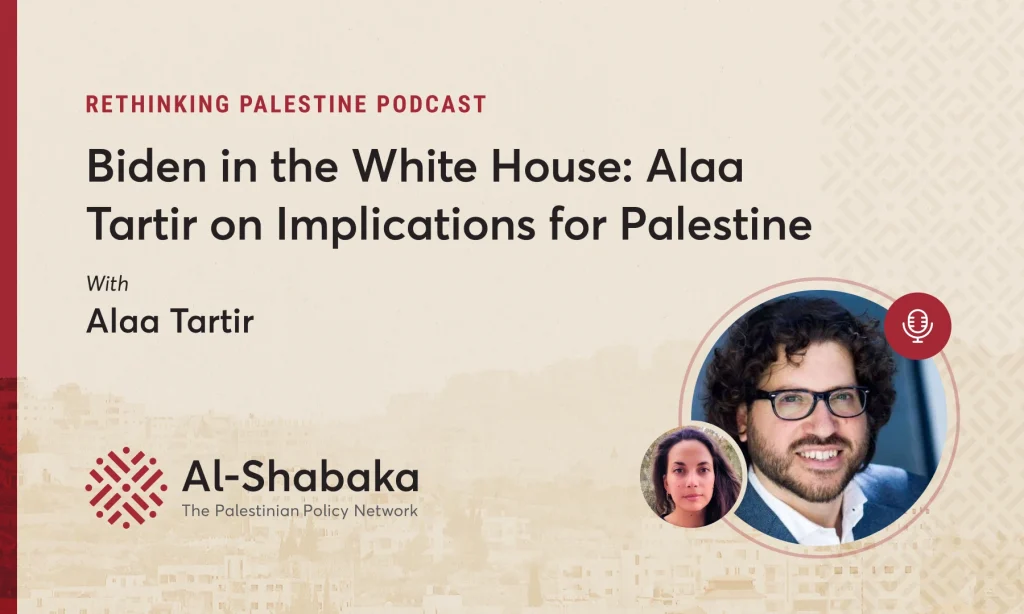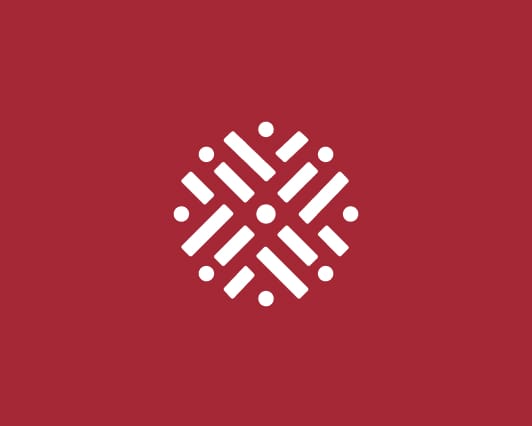Alaa Tartir is Al-Shabaka’s program and policy advisor. He is a senior researcher and director of the Middle East and North Africa Programme at Stockholm International Peace Research Institute, as well as a research associate and academic coordinator at the Geneva Graduate Institute, global fellow at the Peace Research Institute Oslo, and governing board member of the Arab Reform Initiative. Alaa holds a PhD from the London School of Economics and Political Science and is co-editor of Resisting Domination in Palestine: Mechanisms and Techniques of Control, Coloniality and Settler Colonialism (2023), Political Economy of Palestine: Critical, Interdisciplinary, and Decolonial Perspectives (2021) and Palestine and Rule of Power: Local Dissent vs. International Governance (2019). He can be followed on Twitter (@alaatartir), and his publications can be accessed at www.alaatartir.com.
From this author
After more than a year and a half of Israel’s genocidal assault—marked by mass killings, devastation, and profound loss—even speaking of Gaza’s future, let alone its reconstruction, feels impossible. Indeed, the rebuilding of Gaza feels increasingly out of reach amid stalled negotiations, the collapse of the ceasefire agreement, and the relentless bombardment of people and place. Yet in the face of genocide and the looming threat of forced displacement, which the US administration is audaciously promoting as a fait accompli, there is an urgent need to cultivate a critical Palestinian political voice to reclaim Gaza’s future.
As non-Palestinian actors push to impose their vision of the “day after,” this commentary by Talal Abu Rokbeh, Mohammed Al-Hafi, and Alaa Tartir argues for centering a Palestinian vision rooted in unity and self-determination. They emphasize that political reconstruction, not just physical rebuilding, is essential for collective survival and national liberation.
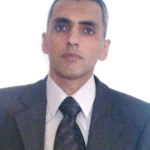


As the Israeli regime continues its genocidal campaign against Palestinians in Gaza, many have begun to weigh in on the future of Hamas and of Palestinian leadership more broadly once the bombardment ends. One of the dominant proposals is the revival of the Palestine Liberation Organization (PLO), with Hamas as a member party.
But revival of the PLO requires more than bringing Hamas into the fold, as the Fatah-controlled PA has effectively whittled down the PLO to a barren institution. What then, beyond inclusion, is needed in order to resuscitate the viability of the PLO? In an effort to strengthen the generative thinking around these questions, Al-Shabaka revisits a collection of its past works that sought to confront this very topic.
The Israeli regime’s ongoing genocide in Gaza has caused widespread devastation across the besieged area. Palestinians have reaffirmed consistently that there is no safe place in Gaza, and that this current assault by the Israeli military is only the latest in over 75 years of attempted ethnic cleansing. As global solidarity with the Palestinian people reaches unprecedented levels, Western powers continue to lend their support to Israel’s efforts towards Palestinian erasure. In this devastating yet critical moment, Al Shabaka’s Tariq Kenney-Shawa, Fathi Nimer, Yara Hawari, and Alaa Tartir weigh in on the unfolding situation since October 7th, 2023, and position it within the context of ongoing Israeli settler colonialism and Palestinian resistance.




+
Alaa Tartir joins host Yara Hawari to discuss the revolving door/al-bab al-dawaar, a critical component of PA-Israeli security coordination. They situate the policy within the wider “collaboration paradigm" and examine its disruptive impact on Palestinian resistance and the liberation movement.


To date, 2023 is the deadliest year on record for Palestinians in the West Bank since 2005, largely due to the Israeli regime’s violent operations in Jenin and Nablus to suppress Palestinian mobilization and armed resistance. While the Palestinian Authority (PA) was largely absent during the Israeli army’s raids, it quickly sought to re-establish the guise of control following their conclusion.

Alaa Tartir· Aug 27, 2023
As of 2023, Mahmoud Abbas surpasses his democratic mandate as President of the Palestinian Authority by 14 years. And as speculation mounts about his successor, the question of his legacy lingers. In a new Al-Shabaka roundtable, policy analysts Tareq Baconi, Yara Hawari, Alaa Tartir, and Tariq Kenney-Shawa reflect on Abbas’s impact on Palestinian leadership and the Palestinian struggle for liberation.




+
In October 2021, the Palestinian Civil Society Team for Enhancing Public Budget Transparency revealed that the Palestinian Authority’s (PA) security sector continues to receive the largest portion of the PA’s budget. During the first half of 2021, more than 50 million Israeli shekels (~$16 million) were spent on the reform of the PA security forces (PASF). The PASF also received 1,675 million shekels (~$538 million) - over 22% of the PA’s total budget - of which 88% were allocated to salaries; this was an increase of 115 million shekels (~$37 million) in comparison with the first six months of 2020.

Alaa Tartir· Nov 14, 2021
Punctuated by the outbreak of the Unity Intifada in May 2021, the trajectory of Palestinian resistance is experiencing a watershed phase marked by new actors and themes. With the effective neutralization of the Palestinian Liberation Organization (PLO) since the 1993 Oslo Accords, the deepening geopolitical fragmentation of Palestinians across colonized Palestine and the world, and the global shift to cyberspace, new opportunities — and threats — to Palestinian resistance have emerged.



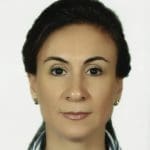
+
Sam Bahour,Rana Barakat,Mary Nazzal-Batayneh, + MoreOroub el-Abed,Nadia Hijab,Victor Kashkoush,Anis Kassim,Osamah Khalil,Mouin Rabbani,Jamil Hilal,Loubna Qutami,Haidar Eid,Yara Hawari,Nadim Nashif,Raya Naamneh,Omar Barghouti,Marwa Fatafta,Tariq Dana,Hatem Bazian,Noura Erakat,Alaa Tartir,Issam Younis,Nada Awad,Diana Buttu,Ingrid Jaradat Gassner· Aug 26, 2021
Alaa Tartir joins host Yara Hawari to discuss the internationally-funded Palestinian security forces. Together, they assess the forces' authoritarian role in sustaining Israel's settler-colonial project and criminalizing Palestinian resistance, shedding light on the recent killing of critic and activist Nizar Banat.


Alaa Tartir and host Yara Hawari discuss what Joe Biden's win in last month's US elections means for the Palestinian people. Whilst many have breathed a sigh of relief at Trump’s ousting, critics also warn that work is yet to be done given the president-elect's track record of support toward Israel and promotion of the antiquated "peace process."







